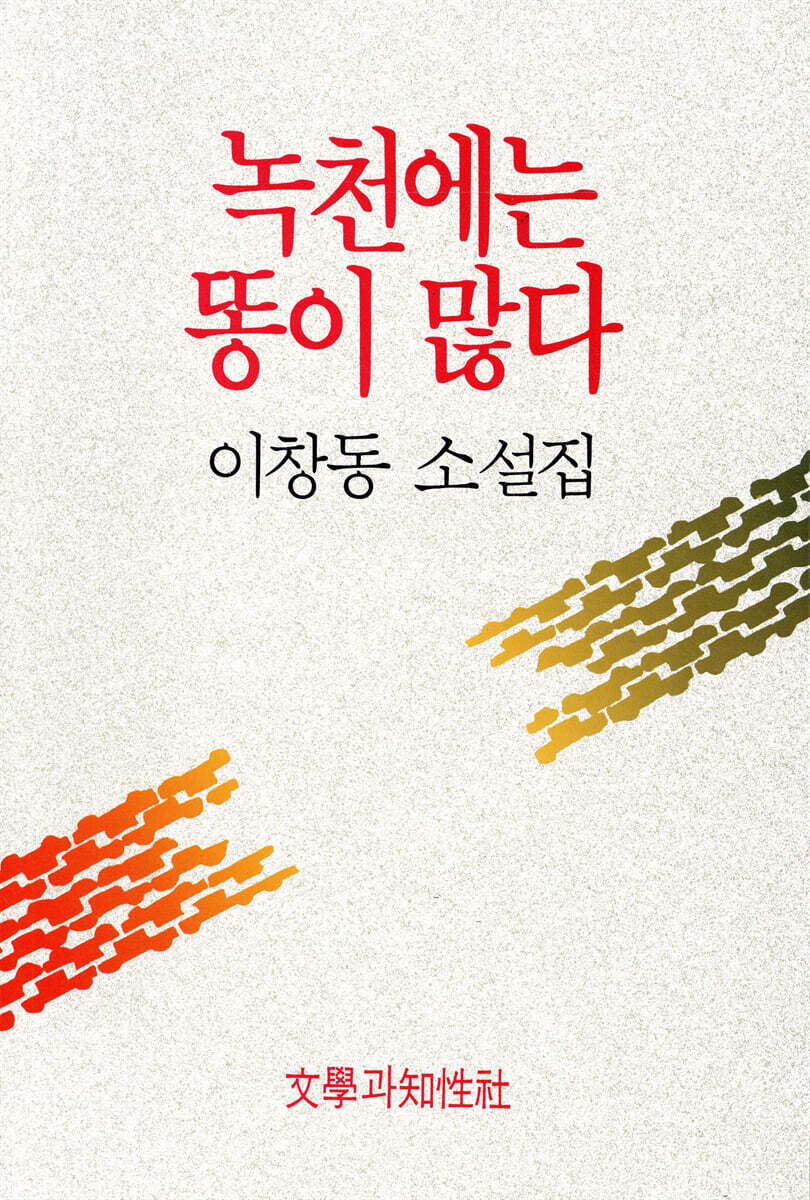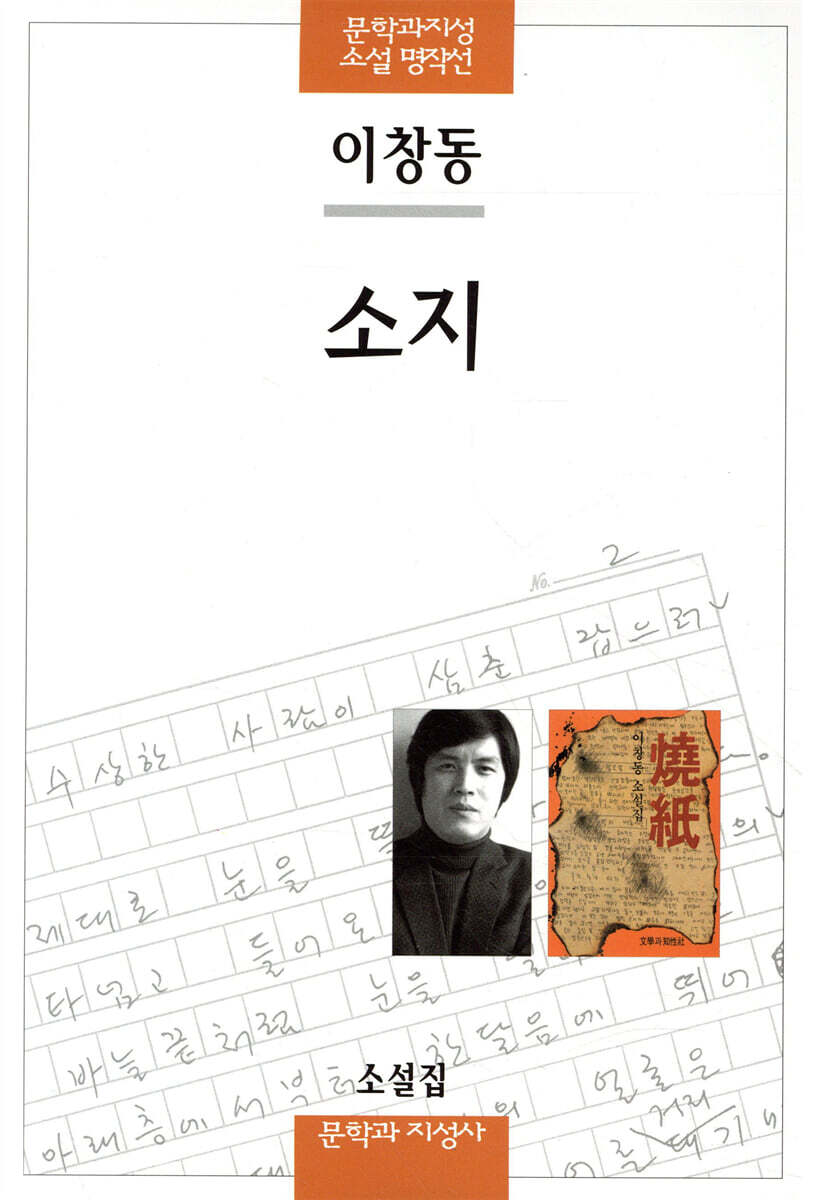Lee Chang-dong (born 1954) is a South Korean film director, screenwriter, and novelist.
Life
Lee Chang-dong was born in Daegu. He studied to be a Korean teacher at Kyungpook National University, but spent much of his time in the theater, writing and directing plays. After college Lee worked as an actor and a theater producer while teaching high school. He made his literary debut in 1983 when his novella Jeolli (전리 Spoils of War) won the Dong-a Ilbo New Writer's Contest. He rose to prominence in 1992 when Nokcheoneneun ttongi manta (녹천에는 똥이 많다 There's a Lot of Shit in Nokcheon) won the Hankook Ilbo Literary Award, but abruptly switched paths to explore filmmaking.
After serving as editor and assistant director for Park Kwang-su's To the Starry Island, Lee wrote and directed Green Fish, which was met with critical acclaim. His following films, Peppermint Candy, which was chosen to open the Busan International Film Festival, and Oasis, which won Silver Lion at the Venice Film Festival, established him as one of the most important figures in Korean realist film. Lee has directed six feature films including Secret Sunshine, Poetry, and Burning, which became the first Korean film to be shortlisted for the 91st Academy Awards' Best Foreign Language Film. All of his films have been garlanded at film festivals around the world, including Cannes, Venice, Toronto, and Oslo. Lee served as South Korea's Minister of Culture and Tourism from 2003 to 2004. He has also taught at Korea National University of Arts.
Writing
Although Lee has embraced many different forms of artistic expression in his career, his art invariably tackles the question of the true value of life. A fundamental and irrefutable faith in human beings, which may seem naive and even sentimental, pervades all his works. Such faith, however, is not rendered with any degree of beauty or romanticism, but rather finds expression in the very tragedy and darkness of life. With powerless social activists or ordinary lower middle-class people as main characters, Lee's works present a ceiling picture of weak and helpless individuals caught in the giant cogwheel of an indifferent society.
Lee's first collection of short stories, Soji (소지 Sacrificial Paper), charts the social changes that marked the turbulent times of the 1970s and 1980s in Korea, and vividly portrays the resulting chaos and social contradictions. The title story features a woman whose husband disappeared during the Korean War after being accused of harboring leftist tendencies. When her two sons fight over ideological issues, she can no longer contain her sadness that has accumulated over the years. Resolving to tell her sons about their father, she pulls out her rotten tooth and throws it into the fire. "Soji" shows how the tragedy of war resonates through family conflicts generation after generation and also hints at the possibility of resolution between the postwar generation and the generation that experienced it firsthand.
Nokcheoneneun ttongi manta, Lee's second collection of short stories, delves into human despair and ideological failures. The title story is a tragic tale of jealousy and inferiority complex featuring a Cain-like protagonist who has labored hard to become a teacher and buy a small apartment in the outskirts of Seoul, where he leads the life of a petite bourgeoisie with his wife and son. With the appearance of his half-brother, however, a man wanted by the police for his involvement in the pro-democracy movement, the modicum of stability and social standing Jun-sik has enjoyed is put into question.
The central concern of Lee's works is the question of how we should live as human beings. Any inquiry into the true value of life necessarily entails a study of the actions we take in life. As such, Lee is deeply interested in the relationship between man and society and in this respect, his art can also be seen as various sketches exploring the dilemmas accompanying those actions that constitute a worthwhile life.
Nació en Daegu. Se graduó en Filología Coreana por la Universidad nacional Kyungpook en 1980, donde pasó mucho de su tiempo escribiendo y dirigiendo obras de teatro. Después de trabajar durante un breve periodo de tiempo como profesor de lengua coreana en un instituto de secundaria, se convirtió en un novelista de éxito con la novela corta El botín en 1983. Después, para sorpresa de muchos, empezó como cineasta y fue ministro de cultura durante el mandato de Roh Moo-Hyun. Lee no estudió cinematografía. Escribió en 1993 los guiones de To the Starry Island (Geu seome gago shibda) y A Single Spark (Jeon Taei-il), ambas películas de Park Kwang-su. Después de que sus amigos y conocidos lo convencieran para que empezara a dirigir películas, Lee Chang-dong hizo Green Fish, una crítica de la sociedad coreana a través de los ojos de un joven que se ve atrapado en el submundo criminal,2 en 1997.
1954年4月1日、韓国の大邱で生まれる[1]。1970年代後半から民主化運動の中心的存在として活動した。1980年に慶北大学校師範学部国語教育学科韓国文学部を卒業。その後、1981年 から1987年まで教師生活を送っていた。また、1987年には小説『戦利』を発表。同作で東亜日報新春文芸賞を受賞した。1993年に『그 섬에 가고 싶다』の脚本を執筆し、映画界に進出。1997年に長編『グリーンフィッシュ』で映画監督としてデビューした。1999年の『ペパーミント・キャンディー』は国内で一部の熱狂的なファンを生んだ[4]。海外でも翌2000年の第53回カンヌ国際映画祭の監督週間部門に出品され、カルロヴィ・ヴァリ国際映画祭とブラチスラバ国際映画祭では審査員特別賞を受賞した[5]。2002年の『オアシス』は第59回ヴェネツィア国際映画祭のコンペティション部門に出品され、銀獅子賞 (監督賞)を受賞した。翌2003年には盧武鉉政権第1期内閣の文化観光部長官に就任。2004年にはレジオンドヌール勲章オフィシエ章を受賞。2007年の『シークレット・サンシャイン』は主演のチョン・ドヨンにカンヌ国際映画祭女優賞をもたらした。2010年の『ポエトリー アグネスの詩』は第63回カンヌ国際映画祭で脚本賞を受賞した。
이창동(1954~)은 대한민국의 소설가며 영화감독이다.
생애
이창동은 1954년 대구에서 태어났다. 1980년 경북대학교 사범대학 국어교육과를 졸업하고 1981년부터 1987년까지 고등학교에서 국어 교사로 일했다.
1983년 〈전리〉가 《동아일보》 신춘문예 중편소설 부문에 당선되며 작품 활동을 시작했다. 1987년 〈운명에 관하여〉로 이상문학상 우수상, 1992년 〈녹천에는 똥이 많다〉로 한국일보 문학상을 수상하였다. 2003년 2월부터 2004년 6월까지 참여정부 초대 문화관광부 장관을 지냈다.
작가는 1993년에 영화 《그 섬에 가고 싶다》의 시나리오와 조감독을 맡으면서 영화계에서 일하기 시작한 후, 소설보다는 영화 작업에 몰두했다. 1996년 영화 《아름다운 청년 전태일》로 백상예술대상 시나리오상을 받으며 주목받았고, 1996년에는 동료들과 영화사(이스트필름)를 설립하고 1997년 《초록물고기》를 만들면서 영화감독으로 데뷔하였다. 이 작품으로 작가는 백상예술대상 작품상, 청룡영화제 최우수작품상 등 국내 주요 영화상을 받았고 20여개의 해외영화제에 초청되었다. 평범한 사람들의 삶을 영화에 담아내고 있는 작가는 1999년에는 두 번째 영화 《박하사탕》을 연출했고, 2002년에는 영화 《오아시스》로 제59회 베네치아국제영화제 감독상을 수상하면서 세계적인 명성을 얻었다. 이후 제64회 칸 영화제 비평가주간(2011년), 제62회 칸 영화제 장편경쟁부문(2009년), 제5회 아시아나국제단편영화제(2007년), 제8회 도쿄 필멕스 경쟁부문(2007년), 제12회 부산국제영화제(2007년) 등 다수의 영화제에서 심사위원을 맡았다.
작품 세계
이창동은 한국 현대사를 소설의 주제로 삼았다. 폭력적인 국가 권력에 희생당하고, 분단의 비극을 경험한 사람들과 비루한 현실 속에서 일상을 지속해가는 사람들의 이야기를 섬세한 통찰을 바탕으로 소설화했다.
소설집 《소지》(1987)는 작가가 1983년부터 1987년까지 여러 잡지에 발표한 11편의 단편을 수록한 소설집이다. 소설집에는 분단의 비극을, 폭력의 현대사를, 또 항상 기쁠 수만은 없는 현실을 감내하며 살아가는 사람들의 이야기가 실려 있다.
소설집 《녹천에는 똥이 많다》(1992)에서 작가는 우리가 살고 있는 현실을 깊이 탐구하여 몇 십 년 동안 우리 사회가 지녀 온 갈등과 대립의 단면, 그리고 현실 세계를 구성하는 우리의 의식과 가치관이 양극화되고 도식화된 현재를 보여주고 있다. 또한 작가는 그 문제적인 현실이 내포한 다양한 균열의 지점을 묘파해 개인의 비극적 삶을 해소하기 위한 방법을 모색한다. 소설집에 수록된 작품들은 체제와 반체제, 부와 빈, 선과 악, 성공과 실패 등 개인의 입장과 태도, 삶의 양과 질을 설명할 수 있는 통념들을 깨뜨리면서 개인이 짊어진 고통의 정체를 설득력 있게 제시하고 있다.
시나리오 《아름다운 청년 전태일》(2013)은 1970년 11월, 자신의 몸에 기름을 붓고 분신자살한 청계천 평화 시장 노동자 전태일의 짧은 생애를 그린 작품이다. 전태일기념사업회 주관으로 제작위원회를 만들고 성금을 모아 제작비에 보태는 등 주목을 받은 영화의 시나리오다. 작가는 산업제일주의에 눌려 노동자들이 혹사당하던 1970년대 초에 노동법 준수를 외치며 분신자살, 이 땅에 노동 운동의 불씨를 던진 전태일의 이야기를 영웅적이고 투사적인 인물이 아니라 우리의 일상에서 누구나 마주칠 수 있는 보통의 청년 노동자로 형상화했다.
주요 작품
1) 소설집
《소지》, 문학과지성사, 1987(개정판, 2003).
《녹천에는 똥이 많다》, 문학과지성사, 1992.
2) 시나리오
《그 섬에 가고 싶다》, 커뮤니케이션북스, 2005.
《아름다운 청년 전태일》, 커뮤니케이션북스, 2013.
《시 각본집》, 아를, 2021.
3) 연출
《초록 물고기》(각본・감독), 1997.
《박하사탕》(각본・감독), 2000.
《오아시스》(각본・감독), 2002.
《밀양》(각본・감독), 2007.
《시》(각본・감독), 2010.
《버닝》(각본・감독), 2018.
《심장소리》(각본・감독), 2022.
수상 내역
1992년 한국일보문학상
1997년 제33회 백상예술대상 영화부문 작품상
2000년 제35회 카를로비바리 국제영화제 심사위원특별상
2002년 제59회 베니스 영화제 은사자상(감독상)
2002년 제59회 베니스 영화제 특별감독상
2008년 제10회 아시아영화평론가협회 각본상
2008년 제44회 백상예술대상 영화부문 감독상
2010년 제63회 칸 영화제 각본상
2010년 제63회 칸 영화제 에큐메니컬(Ecumenical)상 특별언급
2010년 제19회 부일영화상 최우수작품상
2018년 제71회 칸 영화제 국제영화비평가연맹(FIPRESCI)상
2018년 제25회 아다나 국제영화제 골든볼상(최우수작품상)
2018년 제27회 부일영화상 최우수 감독상
2018년 제2회 핑야오 국제영화제 동서교류공헌상




